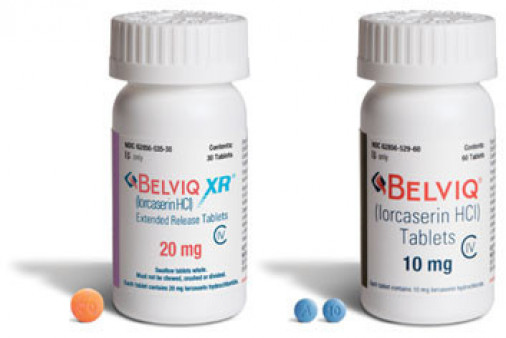WARNING: US FDA Issues Statement That Weight-Control Drug Lorcaserin Increases Cancer Risk
Source: Thailand Medical News Jan 18, 2020 5 years, 10 months, 3 weeks, 6 days, 14 hours, 6 minutes ago
According to the results of a clinical trial assessing the safety of the drug, the U.S. Food and Drug Administration said that the prescription weight control medicine
lorcaserin (
Belviq,
Belviq XR) may increase the risk for
cancer.

A Staff from the agency told
Thailand Medical News, "We cannot conclude that
lorcaserin contributes to the
cancer risk but "wanted to make the public aware of this potential risk. We are continuing to evaluate the clinical trial results and will communicate our final conclusions and recommendations when we have completed our review."
Doctors and health care providers should balance the benefits of taking
lorcaserin against the potential risks when deciding whether to prescribe or continue patients on the medication, the FDA advised. It said that patients currently taking
lorcaserin should talk to their health care professionals about the potential increased risk for
cancer with use of the medication.
Belviq or
Lorcaserin is approved for use with a reduced-calorie diet and increased physical activity to help weight loss in adults who are obese or are overweight and have weight-related medical problems.
Lorcaserin increases feelings of fullness so that people eat less. It is available as a tablet (
Belviq) and an extended-release tablet (
Belviq XR).
The drug
Lorcaserin was approved by the FDA in 2012 for assisting weight-loss in combination with a reduced-calorie diet and increased physical activity in obese or overweight adults. The drug works by increasing feelings of fullness to reduce the amount of food eaten and is available in two tablet-based forms,
Belviq and
Belviq XR.
One research in 2011 of the drug did show the propensity to cause several different types of
cancer in rat models, albeit at doses larger than the recommended clinical dose in humans. The FDA originally rejected the approval of the drug in 2010 based on these results, but later concluded that the development of these tumors were rodent-specific and unlikely to happen in humans.
At the moment there are 49 clinical trials listed on clinicaltrials.gov involving
lorcaserin for a number of indications and 9 are currently recruiting participants or will start shortly. It is currently unknown whether the new findings will affect any of these trials as well as the recommended prescription of the drug for weight-loss.
Belviq’s manufacturer,
Eisai Inc., responded to the FDA’s announcement in a written statement: “Patient safety is
Eisai’s priority and we will continue to wo
rk closely with the FDA to evaluate the clinical trial results,” the statement said. “We recommend patients speak directly with their health care professional in order to make the best decision about their medical treatment. As indicated in the FDA’s communication, at this time, the FDA and Eisai cannot conclude that
BELVIQ increases the risk of
cancer.”
Typically, weight loss drugs approved for long-term use include orlistat (brand name Xenical), lorcaserin (Belviq) and liraglutide (Saxenda) as well as the combination drugs naltrexone-bupropion (Contrave) and phentermine-topiramate (Qsymia).
One recent study showed that these drugs helped overweight or obese people lose at least 5% of their body weight at the end of a year, that’s at least 10 pounds if you weigh 200 compared with a placebo. Qsymia and Saxenda were associated with the highest odds of achieving that amount of weight loss.
For many individuals, losing 5% to 10% of your body weight is associated with improved blood pressure, triglycerides and blood sugar, factors that lower the risk for heart disease and diabetes.
Reference: Food and Drug Administration. (2020, Jan. 16). Belviq, Belviq XR (lorcaserin): Drug Safety Communication – Due to Possible Increased Risk of Cancer. https://www.fda.gov/safety/medical-product-safety-information/belviq-belviq-xr-lorcaserin-drug-safety-communication-due-possible-increased-risk-cancer 